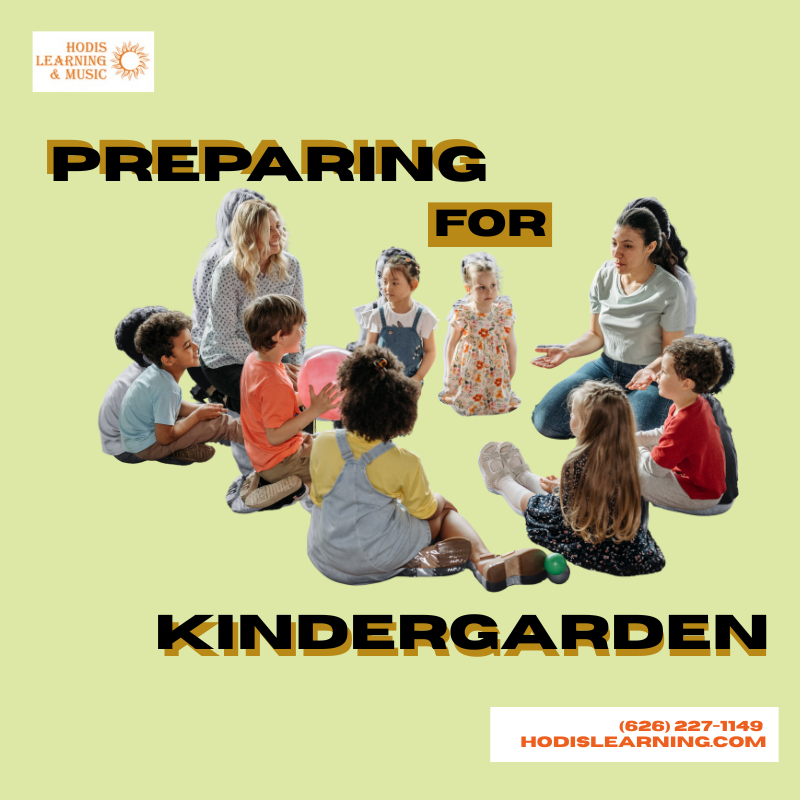Preparing for Kindergarten
Starting Kindergarten is a milestone filled with excitement, growth, and change. It’s the first step into “big kid school” and the beginning of a child’s academic journey. Transitioning from Pre-K to Kindergarten can feel like a big leap, but with the right expectations and support, the journey can be smooth and joyful.
The Transition from Pre-K to Kindergarten
In Pre-K, children are introduced to the basics of school: routines, early social skills, and foundational academics like letters, numbers, and colors. Kindergarten builds on this by focusing on more structured learning, fostering independence, and preparing children for the elementary school years ahead.
Parents may notice:
- Longer school days compared to preschool.
- More structure in routines and classroom expectations.
- Academic focus on early reading, writing, and math skills.
- Growth in independence, from managing school supplies to following multi-step directions.
This transition may feel big, but it’s designed to be gradual. Teachers know children are still adjusting and learning how to “be students.”
What Kindergarteners Will Learn
Kindergarten lays the foundation for a child’s academic journey. Common learning goals include:
- Reading Readiness: Recognizing sight words, phonics, and beginning to read simple books.
- Writing Skills: Holding a pencil, forming letters, and writing their names and short sentences.
- Math Foundations: Counting, number recognition, basic addition and subtraction, and understanding shapes and patterns.
- Social-Emotional Growth: Learning to share, take turns, work with others, and solve problems.
- Independence and Responsibility: Following classroom rules, organizing belongings, and building confidence in trying new tasks.
How Parents Can Support the Transition
Parents play a huge role in making Kindergarten a positive experience. Here are a few simple ways to help:
- Build routines at home. Practice a consistent bedtime and morning schedule.
- Encourage independence. Let your child pack their backpack, put on shoes, and clean up after play.
- Read daily. Even just 10 minutes of reading together supports vocabulary development and reading comprehension.
- Talk about school positively. Help your child see school as an exciting place to learn and make friends.
- Stay connected with teachers. Communication builds a team approach to supporting your child’s growth.
The Role of Play and Limiting Screen Time
While technology has its place, research shows that excessive screen time can affect attention spans, sleep, and social development. The American Academy of Child & Adolescent Psychiatry recommends limited screen use for young children. The American Academy of Pediatrics recommends that caregivers consider the quality of content, if and when screens are used for play and entertainment.
Prioritize hands-on play with physical toys and learning games. Activities like building with blocks, playing board games, drawing, or role-playing with dolls and puppets stimulate creativity, problem-solving, and motor skills. These experiences are scientifically proven to strengthen neural connections in the brain and build the foundation for critical thinking and emotional regulation.
When Early Education Tutoring Might Help
Not every child needs tutoring in Kindergarten, but there are situations where extra support can make a big difference. Tutoring can help if:
- Your child is struggling to recognize letters, numbers, or sounds while classmates are moving ahead.
- They feel anxious or frustrated about learning tasks.
- Teachers notice delays in attention, comprehension, or fine motor skills (like holding a pencil).
- English is not your child’s first language and they need extra practice with reading and vocabulary.
Tutoring at this stage isn’t about “pushing” children but about closing small gaps early and building confidence, so learning feels fun instead of overwhelming.
Signs Your Child Might Need Extra Support
Parents should watch for:
- Ongoing difficulty remembering letters, sounds, or numbers.
- Trouble following simple instructions or routines.
- Avoidance of reading, writing, or counting activities.
- Frustration or emotional outbursts around homework or schoolwork.
- Teacher feedback suggesting extra practice at home.
If you notice these signs, tutoring can provide a safe, encouraging space to practice skills and regain confidence.
Other Things Parents Should Know About Kindergarten
- Social development is just as important as academics. Friendships, cooperation, and emotional regulation are big parts of Kindergarten success.
- Progress will look different for each child. Some kids learn to read quickly, while others take more time.
- Play is still learning. Even in a structured environment, playtime is crucial for creativity and problem-solving.
- Kindergarten is just the beginning. It’s not about being “perfect” at reading or math. It’s about building a strong foundation for learning while also nurturing essential social-emotional growth and positive interactions.
Final Thoughts
By knowing what to expect, supporting your child at home, and seeking help when needed, you can make this transition to Kindergarten exciting and rewarding for both you and your child. If you do feel you need tutoring for your child, call us at (626) 227-1149 or visit our website to learn more.



